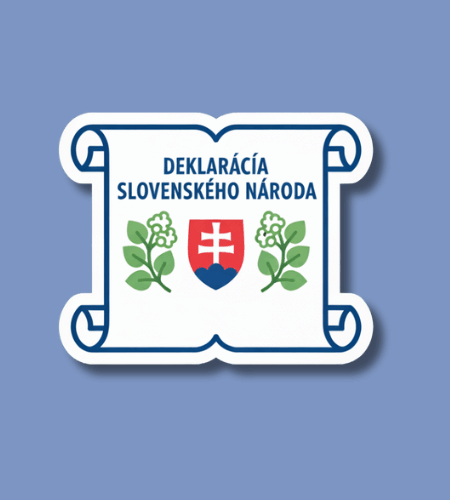Anniversary of the Declaration of the Slovak Nation, observed on October 30, commemorates the day in 1918 when the Martin Declaration was adopted in the town of Turčiansky Svätý Martin (now Martin) and marked the Slovak nation’s decision to join with the Czech lands to form the new state of Czechoslovakia.
Table of Contents
History of the Anniversary of the Declaration of the Slovak Nation
On 30 October 1918, after the collapse of the Austro‑Hungarian Empire following World War I, more than 100 delegates convened in Martin and approved the Martin Declaration, in which the Slovak National Council affirmed that the Slovak nation had the right to self‑determination and expressed its willingness to enter into a shared state with the Czechs.
While the birth of Czechoslovakia was formally declared two days earlier in Prague on 28 October 1918, the Slovak declaration holds distinct historical importance because it emphasized Slovak self-representation and the assertion that only the Slovak National Council could speak for the Slovak nation—not the Hungarian government.
Why is this observance important?
When I reflect on this day, what resonates is the idea that national identity is more than territory—it’s about voice, representation, and belonging. The Martin Declaration was a bold statement: the Slovak nation would not simply be swept into a new state by external actors—it would participate, it would be represented, it would claim its own agency. That sense of “we speak for ourselves” is what makes this observance significant, beyond calendar dates.
Moreover, the day invites us to consider how foundational moments shape subsequent decades of society, politics and culture. The decision made in 1918 continues to echo in the Slovak Republic’s own journey: sovereignty, democracy, inclusion, the rights of nationalities. It encourages reflection on how past generations sought to secure a future for their children, and how we continue to honour that legacy.
Here are some thoughts on why the day holds particular meaning:
- It affirms that the Slovak nation sought a shared state with equal voice, not mere annexation.
- It underscores the value of self‑determination, a theme that remains relevant in many societies.
- It reminds us that history is made not just in capitals but also in smaller towns where representatives gathered and made choices.
- It gives modern Slovaks a moment to remember that sense of participation and civic responsibility.
- It provides a lens to reflect on how national identity, statehood, and community intersect across time.
How to Observe the Anniversary of the Declaration of the Slovak Nation
Observing October 30 doesn’t require grand celebrations. You might choose to read the text of the Martin Declaration (or a translation) and reflect on what “nation,” “state,” or “representation” meant then and what they mean now. If you live in or travel to Slovakia, you might visit the building in Martin where the declaration was adopted and attend a wreath‑laying or memorial event. These acts connect you with the space of history.
Another meaningful way: engage with younger people—students, friends, family—and talk about how the choices of 1918 affect life today. What does being part of a state mean? How does national belonging shape personal life? Even a simple conversation can make the day more than a date on the page.
Here are some approachable ideas:
- Visit or virtually tour the Tatra Banka building in Martin, where the declaration was adopted.
- Share a post or message on social media about the Martin Declaration and its significance.
- Read an article or book chapter about Slovakia’s path from 1918 to the present and discuss it with someone.
- Attend or watch a commemoration event in Martin or another Slovak city, if available.
- Use the day to reflect: what does national identity mean for you? How do historical events influence modern society?
Anniversary of the Declaration of the Slovak Nation
Dates Table
| Year | Date | Day |
|---|---|---|
| 2026 | October 30 | Friday |
| 2027 | October 30 | Saturday |
| 2028 | October 30 | Monday |
| 2029 | October 30 | Tuesday |
| 2030 | October 30 | Wednesday |
Subscribe to our newsletter and never miss a holiday again!

